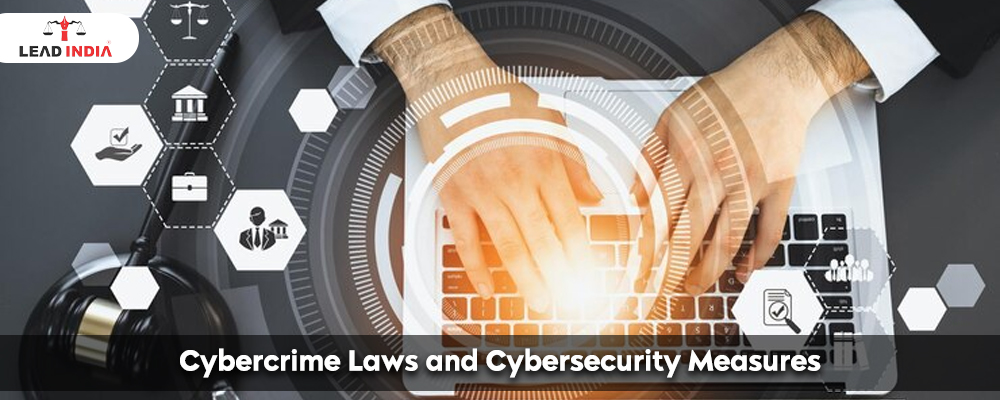Cybercrimes are define as any illegal behavior involving a computer, network device, or other connect device. Cybercrimes are sometimes commit to make money for the perpetrators, while other times they are commit specifically to render a computer or gadget inoperable or damage. There is also a chance that other people will use computers or networks to disseminate photos, viruses, or any other type of material that is prohibite.
The Indian Penal Code, of 1860, and the Information Technology Act, of 2000 both address cybercrimes in India. Cybercrimes and electronic trade are cover under the Information Technology Act of 2000. Nonetheless, the Act was revise in 2008 and included a definition and guidelines for cybercrime. Additionally, several changes were made to the Reserve Bank of India Act and the Indian Penal Code 1860.
Need A Legal Advice
The internet is not a lawyer and neither are you. Talk to a real lawyer about your legal issue

Cybercrime laws in India
- Information Technology Act, 2000: The IT Act is a significant part of the Indian legal system since it controls the entire process of looking into cybercrimes. The relevant sections are list below:
- Section 43: The IT Act’s provisions pertain to those who commit cybercrimes, such as harming the victim’s computer without the victim’s express consent. If the owner of the computer agrees to a situation where damage occurs without authorization, the owner is entitle to a full return for the entire amount of damage.
- Section 66C: This section addresses password hacking, digital signatures, and other identity theft methods. This clause charges a fine of one lakh rupees in addition to a maximum three-year jail sentence.
- Section 66D: This section deals with utilizing computer resources to cheat by impersonating someone else. If found guilty, the penalty consists of a fine of up to Rs 1 lakh and/or a maximum of three years in prison.
- Cyberterrorism Acts (Section 66F). A person guilty of a crime may spend the rest of their life behind bars. As an illustration, consider the time a threat email challenging the security services to stop a terror attack planned on the National Stock Exchange and the Bombay Stock Exchange was deliver.
- The Personal Data Protection Bill, 2019: The Act intends to control how businesses and organizations that operate in India gather, store, and utilize personal data. It provides guidelines for data protection and gives people more authority over their data.
- Agency for Cyber Security in India (CSAI): A proposal to create a specialize CSAI is being thought about. To improve national cyber resilience, this organization would be in charge of managing and coordinating all government-wide cyber security measures.
Cybersecurity Measures
In recent times, the country has witnessed a notable surge in cyber threats, posing a threat to both persons and businesses through diverse forms of cyberattacks. To confront the cybersecurity concerns in India, the Indian government has put in place several programs and policies.
- The Computer Emergency Response Team (CERT-In) locate in India: Controlling cybersecurity issues and organizing incident response efforts are critical tasks perform by the CERT-In. It serves as India’s central agency for tackling vulnerabilities, responding to incidents, and managing security on the country’s internet.
- Cyber Surakshit Bharat: In collaboration with the National Electronic Governance Division (NeGD), the Ministry of Electronics and Information Technology (MeitY) introduced Cyber Surakshit Bharat to advance the government’s vision of Digital India. This campaign was start to raise awareness of the most recent cybercrimes and India’s cybersecurity issues.
- The Cyber Swachhta Kendra: It is a project aim at identifying and eliminating dangerous botnet programs from computers and connect devices. It helps to increase the security of systems and devices and offers free virus analysis tools.
- National Cybersecurity Policy: The Indian government’s National Cyber Security Policy is an important step in the fight against cyber threats. Protecting data and other vital infrastructure is its goal, and it offers a framework for building a safe cyber ecosystem.
As technology advances, more and more unsettling content is emerging on the dark web. The Internet has turned into a weapon for evil activities, which clever people occasionally use for financial gain in addition to other malicious purposes. For this reason, cyber laws are relevant and crucial at this time for all citizens. Certain actions are categorize as “grey” activities because they cannot be regulate by legislation because cyberspace is a very challenging environment to operate in.
Lead India provides free legal advice and online information among other legal services. We offer a platform where you can talk with a lawyer and ask legal questions. Lead India’s lawyers can help you with any legal matters. Lead India offers free online legal help in India. In addition to providing legal advice online, Lead India allows users to ask legal questions for free.



